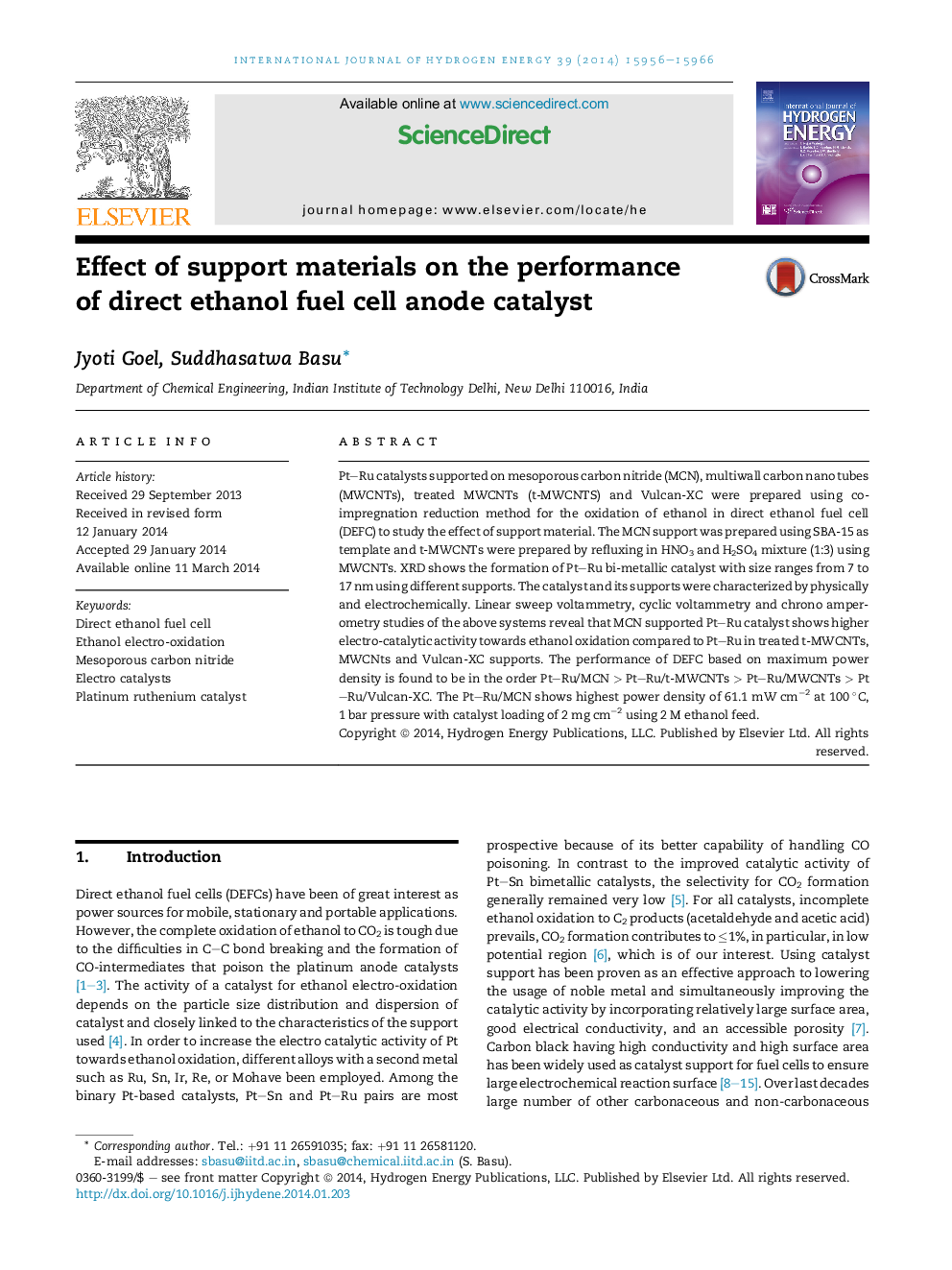| Article ID | Journal | Published Year | Pages | File Type |
|---|---|---|---|---|
| 1272440 | International Journal of Hydrogen Energy | 2014 | 11 Pages |
•MCN and treated MWCT supports prepared and characterized successfully.•Pt–Ru embedded supports checked for electro-oxidation of ethanol.•MCN and t-MWCNT support enhances the electro-oxidation of ethanol in DEFC.•Maximum power density for Pt–Ru/MCN anode in DEFC gives 61.4 mW cm−2 at 100 °C.
Pt–Ru catalysts supported on mesoporous carbon nitride (MCN), multiwall carbon nano tubes (MWCNTs), treated MWCNTs (t-MWCNTS) and Vulcan-XC were prepared using co-impregnation reduction method for the oxidation of ethanol in direct ethanol fuel cell (DEFC) to study the effect of support material. The MCN support was prepared using SBA-15 as template and t-MWCNTs were prepared by refluxing in HNO3 and H2SO4 mixture (1:3) using MWCNTs. XRD shows the formation of Pt–Ru bi-metallic catalyst with size ranges from 7 to 17 nm using different supports. The catalyst and its supports were characterized by physically and electrochemically. Linear sweep voltammetry, cyclic voltammetry and chrono amperometry studies of the above systems reveal that MCN supported Pt–Ru catalyst shows higher electro-catalytic activity towards ethanol oxidation compared to Pt–Ru in treated t-MWCNTs, MWCNts and Vulcan-XC supports. The performance of DEFC based on maximum power density is found to be in the order Pt–Ru/MCN > Pt–Ru/t-MWCNTs > Pt–Ru/MWCNTs > Pt–Ru/Vulcan-XC. The Pt–Ru/MCN shows highest power density of 61.1 mW cm−2 at 100 °C, 1 bar pressure with catalyst loading of 2 mg cm−2 using 2 M ethanol feed.
